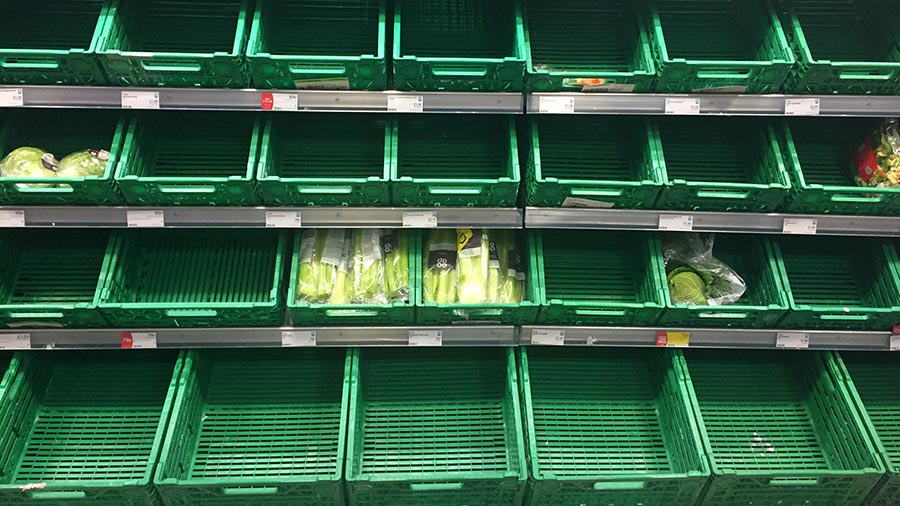Horticulture under threat as production costs continue to rise
 © Ink drop/Adobe Stock
© Ink drop/Adobe Stock Further consolidation in the fruit and vegetable sector is on the cards as producers brace themselves for a third consecutive year of rising costs and inadequate returns, says the NFU.
The warning coincides with publication of the latest Promar International report into the sector, which shows production costs are now 39% higher than they were two years ago, with the biggest increases seen for energy (+218%), fertiliser (+47%) and labour (+24%).
See also: Defra seeks fresh produce growers’ views on contractual fairness
A similar report in November 2022 showed that input costs had climbed by 27% over the previous 12 months.
NFU horticulture and potatoes board chairman Martin Emmett said: “We are now facing the third year of unprecedented and highly volatile costs of production, coupled with ongoing uncertainty about the availability of permanent and seasonal workforce, and supply chains that return little value back to growers.
“Growers are doing everything they can to make sure the supply of home-grown fruit and vegetables are on supermarket shelves. But as highlighted in the report, there is likely to be further consolidation in production and distribution. If pressures continue as they are, it will be unsustainable for some businesses.”
Fairness
The new Promar report follows the recent launch of a new consultation by government into fairness in the horticulture supply chain – a process which could, in time, lead to more equitable contracts.
“Many businesses are continuing to face difficult customer relationships, with prolonged contract negotiations, and contract planning cycles out of sync with production cycles, making it tough for growers to plan long-term for their businesses. This needs to change,” said Mr Emmett.
In particular, the government should introduce a five-year rolling Seasonal Workers Scheme, as well as sustainable returns and longer-term contracts with key customers, notably retailers.
“It is crazy to think that, at a time when we want people to eat more healthily, we are only 50% self-sufficient in vegetables and 15% self-sufficient in fruit,” said Mr Emmett.
Yet retailer pressure on supply chain margins appears to be increasing.
Farmers were extremely critical on social media over the Christmas period of supermarket offers, with items such as broccoli, carrots, swedes and brussels sprouts all being sold for 15p/bag – below the cost of production.
Just a small insight into what farmers go through to supply supermarkets at Christmas, only to be slapped in the face in the shopping aisles!
It’s bloody criminal! ? pic.twitter.com/KeG2IeHLSS— Richard Limb (@RichardLimb8) December 20, 2023
And last week supermarket Morrisons announced “one of our biggest price cuts in recent years”, reducing prices on more than 500 products in-store, and introducing “new and improved” multi-save offers.
“Over 200 products are being cut by an average of 20%, including cupboard essentials and breakfast options, as well as fresh produce, to help people have a nutritious and healthy start to the year,” said a spokesman.
Mushrooms, frozen peas and chopped tomatoes are all affected.
